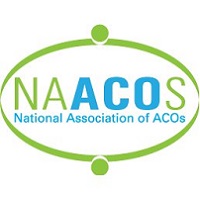 Accountable care organizations have been around in Medicare for more than a decade, generating more than $22 billion in savings and giving back more than $8 billion to the Medicare Trust Fund. But a handful of ACOs has consistently been at the top of the list of top savers, including Millennium Physician Group and Palm Beach ACO, both in Florida, and Privia Health, a physician enablement company based in Northern Virginia. Leaders of those ACOs shared their pearls of wisdom at the NAACOS Fall 2023 Conference.
Accountable care organizations have been around in Medicare for more than a decade, generating more than $22 billion in savings and giving back more than $8 billion to the Medicare Trust Fund. But a handful of ACOs has consistently been at the top of the list of top savers, including Millennium Physician Group and Palm Beach ACO, both in Florida, and Privia Health, a physician enablement company based in Northern Virginia. Leaders of those ACOs shared their pearls of wisdom at the NAACOS Fall 2023 Conference.
Two consistent themes were: Improving patient access to care and engaging physicians.
Patient Access to Care
Palm Beach ACO stressed improved access to care, which includes more preventive care, more urgent care, and more chronic disease management. “You see patients in the little building, you keep them out of the big building,” said David Klebonis, the ACO’s chief operating officer. Palm Beach consistently has 40 percent fewer preventable ER visits than their peers.
If Keith Fernandez, Privia’s chief clinical officer, were starting a new ACO today, he would focus on access first, which will yield results faster and create better satisfaction for clinicians faster. “If you start out with taking great care of the patient first, you’ll keep those doctors with you much longer because you’re not going to get the money for a couple of years.”
Relatedly, Kevin Kearns, Millennium’s chief executive officer, has focused on refining its care management program, focusing on really high-risk patients. Millenium now follows up with those patients two days after a hospital discharge.
Physician Engagement
All panelists also stressed the need to have physician buy-in to the ACO. Millennium holds regular meetings with its physicians to keep them engaged. Transparency on how to distribute shared savings and compensate physicians is important. Millenium has metrics on utilization, and the company places a high priority on access, quality, and fee-for-service spending.
Fernandez stressed the importance of choosing wisely when adding physician practices to the ACO. “You look for physician who want to do something different, who have good practices, who want to change,” he said. “Most private practice physicians are not in a position to do this type of care out of the gate.” Millenium has a strong governance structure within its ACO, which includes a leadership and training program to elevate the next generation of leaders.
Palm Beach ACO’s doctors are all bought into the performance of the ACO because they own the practice and ACO. When the ACO does well, that means more equity for them in the form of profit sharing. That incentive means doctors are engaged and have expanded to provide same-day urgent appointments, after-hours phone lines, and consults with physicians. “That creates what we call ‘Super PCPs [primary care providers],'” Klebonis said. “They take personal responsibility for patient care. They’re willing to go above and beyond to hit Medicare’s results.”
Additional Tools for Success
The ACOs had other keys to success, which included improving access to data, deemphasizing risk adjustment, and pinpointing fraud.
Florida ACOs also noted the importance of receiving alerts about when their patients have been hospitalized or visited the emergency department. This alerts clinicians to who needs to be seen or followed-up on.
Fernandez said having a common electronic health record (EHR) across its ACO, while not possible for everyone, is helpful. The ACO is able to easily aggregate data and analyze it to better understand patients, the care they were receiving, and the performance of clinicians.
Klebonis noted the importance of spotting and alerting authorities to potential fraud in the ACO’s communities, fraud that may result in additional spending attributed to their patients and hurt the ACO’s performance. Palm Beach ACO recently identified large amounts of fraud in durable medical equipment.
The ACOs also discussed strategies that may not yield as much benefit as anticipated. Of note, some of the ACOs recommended not placing significance on risk adjustment. The results of risk coding can take years to see benefits, can consume a lot of resources, and may ultimately be limited because of Medicare’s policies limiting the growth in ACOs’ risk scores.
